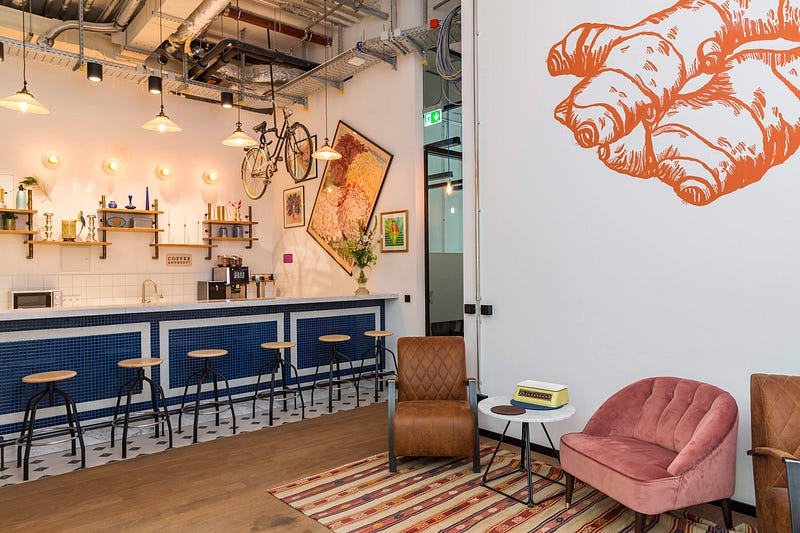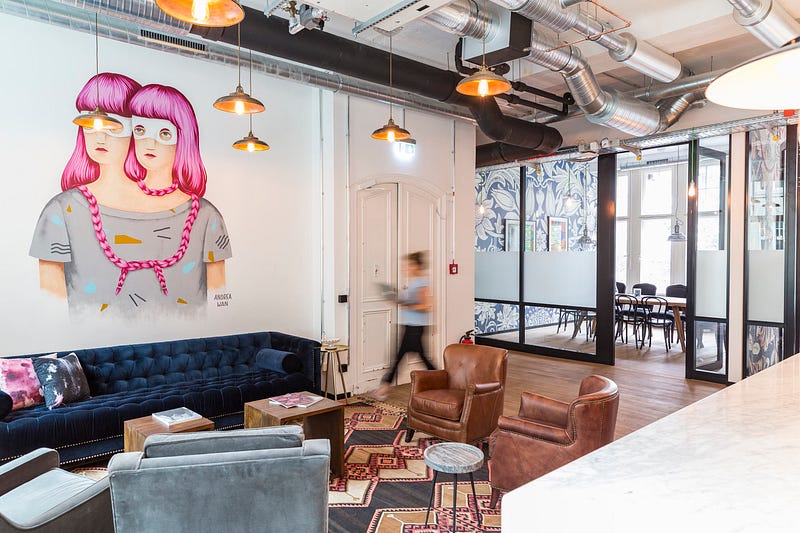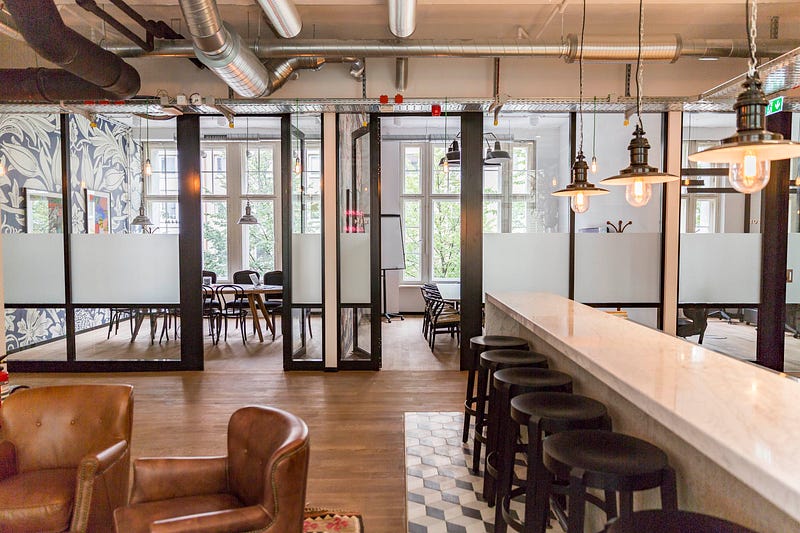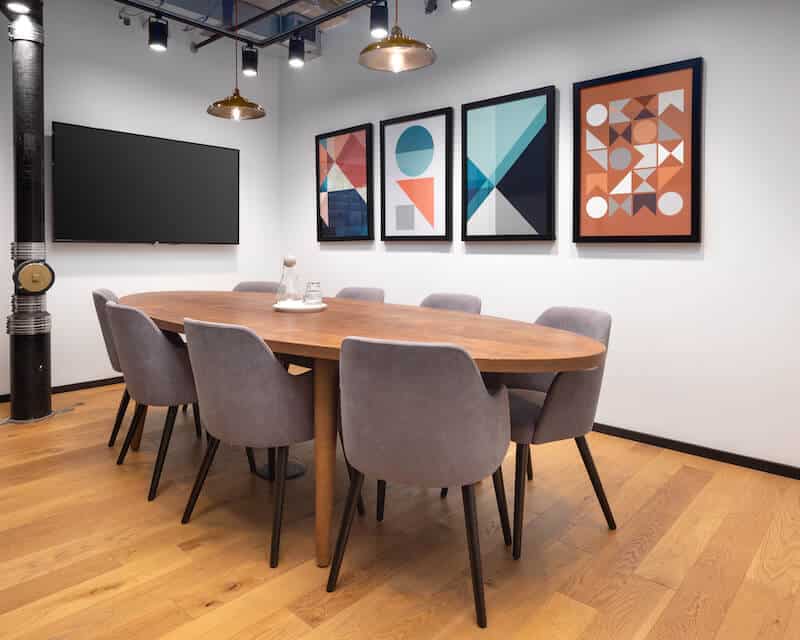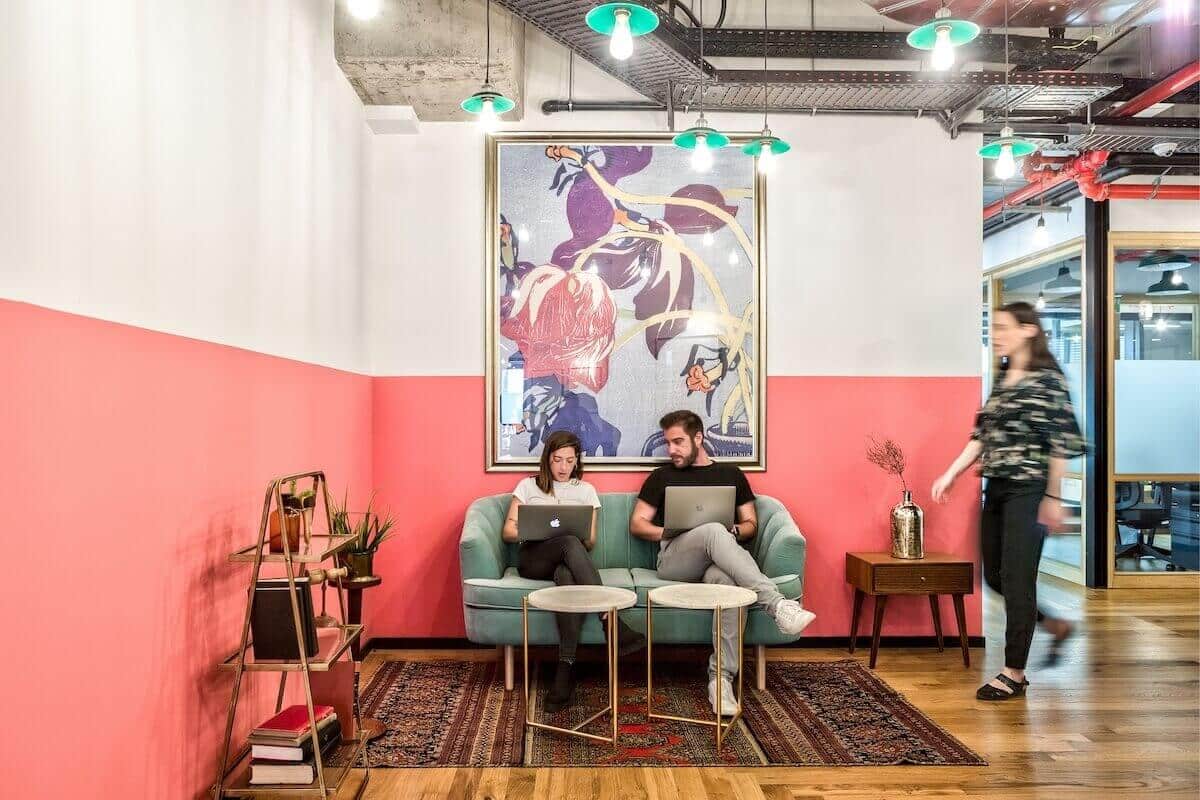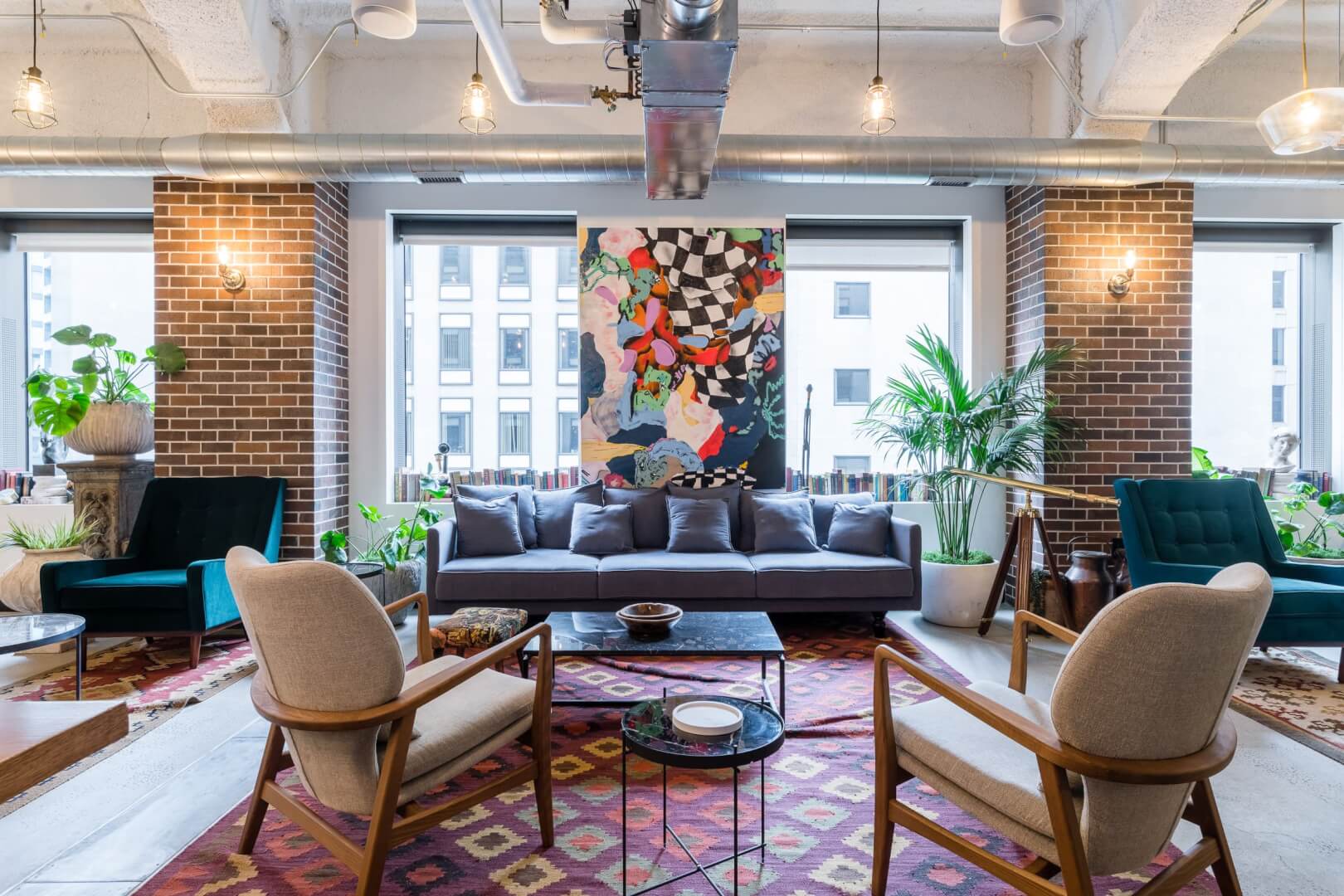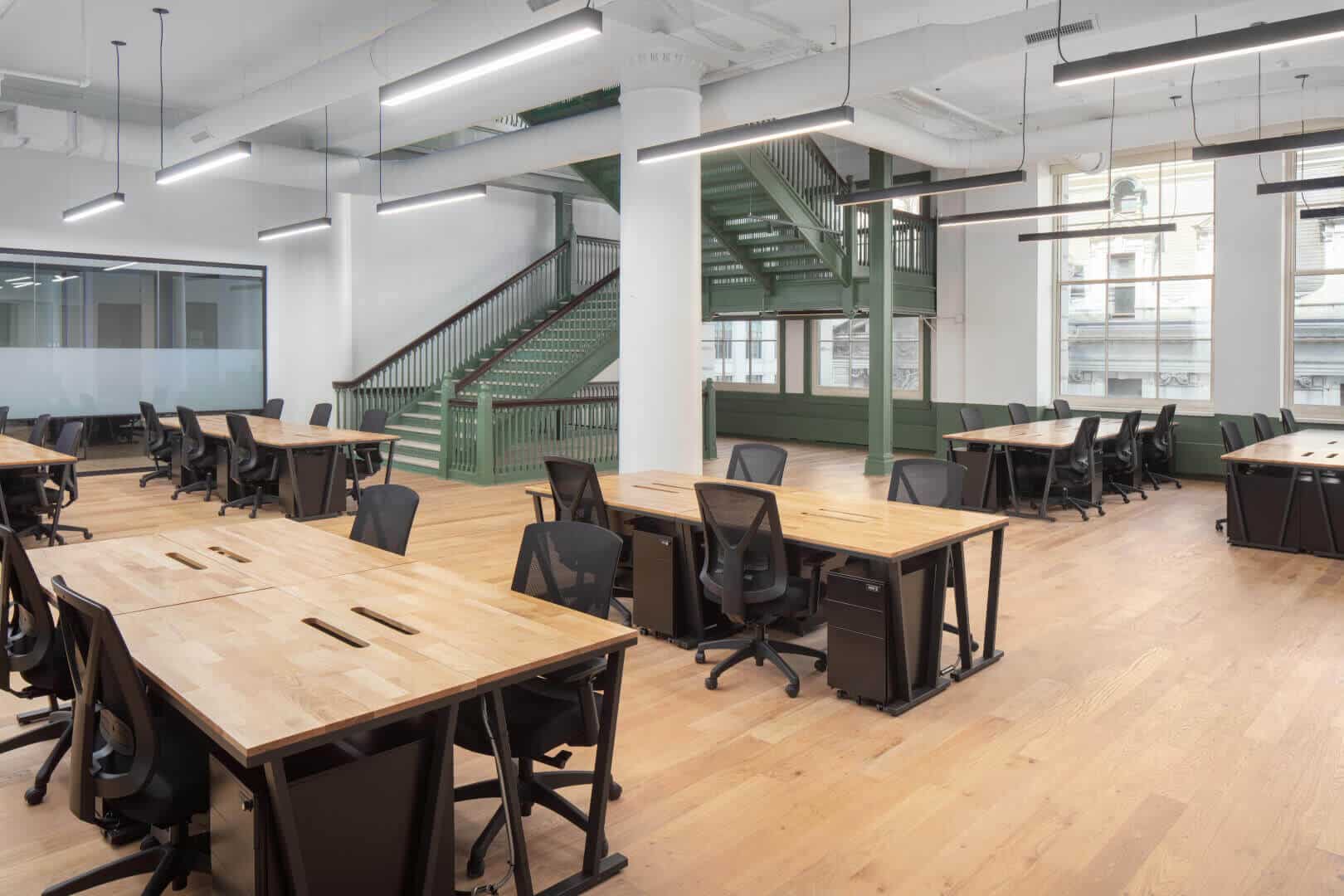Tech Companies Discover the New Working World
The world has proven to be anything but predictable. The changing shape of the economy, the shift to remote work and rise of the gig economy have all shaken up the real estate sector. The winners to emerge from all this change and uncertainty are the flexible office rental and coworking players, who in addition to providing a more efficient commercial real estate solution, have created a new blueprint for employee engagement.
Employers and employees both need the workplace of the future to be agile and productive. If your company hasn’t tried the benefits of coworking yet, read on to discover why it’s becoming a staple of the modern workforce.
What are the benefits to coworking or flex office spaces?
Alternative office, workplace of the future, flexible offices — there are many synonyms for coworking. What started a few decades ago as a solution for freelancers and young startups, has now become a global trend. Currently, more than one million people worldwide work in coworking spaces like coworking Wynwood (one of the best areas in Miami for an office), and the number continues to grow. Large companies increasingly use coworking for their needs, and often house entire departments consisting of hundreds of employees within coworking spaces. There is also a shift towards enterprises leveraging coworking spaces as research labs, centers of innovation, or as satellite offices. This concept has become a central part of the tech and innovation scene.
The reasons to be pro-coworking are many fold and cover a wide range of aspects of everyday working life. Most of the coworking spaces, such as our coworking Brooklyn space, are characterized by their community. The exchange between members in one or more locations is actively promoted through shared spaces such as lounges and communal kitchens, as well as networking events. In addition to internal events, many coworking providers also invite external partners to events. As a result, members can quickly connect to the local ecosystem and network professionally. Through the informal exchange during a working day, new cooperations and partnerships can develop, which would otherwise not be possible.
Coworking also represents “the future of work”. In addition to networking with other companies, the unique vibe in coworking spaces promotes innovation and productivity. The design of coworking spaces is often driven to inspire and provide new ideas and creations. For example, our flex office space in Philadelphia is located in a landmark that originally housed one of the first department stores in America. With such a unique space, creativity and motivation are bound to thrive. Product and innovation teams, of large tech companies, in particular, benefit from this and can break out of the old, traditional corporate structure and ways of thinking. The stimulating working environment is also a big plus for motivating existing employees and attracting new ones. IT and tech companies are in a perpetual “war for talent”. Finding top talent can be extremely difficult. Individual factors such as the workplace and other benefits can make the decisive difference. Coworking represents a modern lifestyle that attracts millennials — the generation that will constitute more than 75% of the global workforce by 2020. Having an innovative ‘Silicon Valley’ vibe can be a top draw for this generation.
An additional, particularly attractive coworking advantage for tech companies is a reduction in costs. Tech companies of all sizes can choose spaces to suit their needs in coworking spaces and scale their team’s flexibility at any time. In contrast to a traditional office, coworking space members save 20–40% of their expenses. Memberships are often “all-inclusive packages” and, in addition to avoiding setup costs associated with traditional offices, they also include all taxes, cleaning, internet services, coffee and snacks, printing, and other cost benefits.
The global catalyst for accelerating the coworking trend
In a pre Covid world, commercial and office real estate investments appeared to be a safe bet. Throughout the pandemic companies adapted to the changing world and evolving worker needs, downsizing from a traditional corporate office set-up to accommodate hybrid or remote work models. In addition, smaller businesses such as restaurants, wellness studios and gyms were hit hard, with many forced to close. Landlords were suddenly struggling to maintain rental income, jeopardizing their livelihood.
Coworking and flex office spaces provided a solution to meet everyone’s evolving needs. Companies shifting to a coworking, hybrid office, or flex office space like the Williamsburg shared office space can provide their remote workers with on-demand meeting rooms and a much needed sense of community, while enjoying greater flexibility and lower rental overheads. Landlords and real estate agents have found a new way to transform large previously undesirable empty buildings into beautifully designed open spaces complete with yoga studios, restaurants and gyms – the greatest victims of the pandemic.
What does the future of work look like?
Post Covid, despite some attempts by companies to reverse remote working, research shows that it’s the work mode of choice looking to the future. Research by career experts, Zippia Research, showed that 74% of U.S. companies are already using or plan to implement a permanent hybrid work model and 83% of workers would prefer a hybrid work model in the future.
While the world will undoubtedly surprise us again and force us to continue to adapt, there are a few emerging trends that enable us to predict what the future of work will look like.
The Environment
We can’t discuss the future of anything, without raising the pending issue of global warming. To reduce consumption and help save the planet, we need to embrace the shared economy. From coffee machines and kitchen kettles to printers and showers, coworking is an ideal example of encouraging companies to share resources. To reduce pollution, some workers will be encouraged not to commute by car but to work in their local neighborhood.
In the future, neighborhood based coworking hotspots could provide professionals with the right office environment for connectivity, productivity and mobility, enabling companies to reduce their carbon footprint. Many companies have already begun to adopt this approach, with so-called ‘satellite offices’ based out of coworking hubs worldwide – from hybrid offices in London to this trendy new Miami coworking space. At Mindspace we are committed to building a sustainable eco-friendly operation, with an entire ESG policy to adhere to. For example, most of our locations at Mindspace already discourage the use of paper, take part in ‘green’ volunteering projects and are decorated throughout with thousands of oxygen emitting green plants.
The Gig Economy
The astounding rise in the gig economy, defined as temporary, short-term or contract employees, is presenting companies with a new set of challenges for retention and engagement. Recent statistics published by Mastercard predict that the number of global gig workers is expected to rise from 43 million to 78 million in 2023.
While companies and employees alike are realizing the flexibility and benefits of freelancing, it can lead to a disconnected and isolated workforce. Coworking, with the added option of hot desking, helps mitigate this, providing plenty of open office space and conference rooms for collaboration and networking.
Cyber Security Threats
As more people are working remotely and the amount of confidential data shared from different locations increases, it’s inevitable that data breaches are going to become a bigger problem for companies. For hackers, every digital device – whether a laptop, mobile phone or tablet, is a potential target, highlighting the vulnerability of working from home or a coffee shop. The IT infrastructure and security that comes with coworking could help provide an affordable antidote. At Mindspace, we reassure members their data is safe by equipping every location with the latest technology to prevent cyber-attacks.
Deep Tech Innovation
New deep tech innovations in the HR industry are also lending themselves to continued growth of flexible office and coworking spaces. New software developments make it easier than ever before to understand and measure employee engagement and productivity, without the need to physically sit next to management or the same colleagues every day. The future of work will be interconnected and mobile, and companies simply won’t need to commit to long-lease office rentals, with demand for flexible, open team office space likely to rise.
Mental Health
Escalating mental health issues will be unavoidable for HR departments in the future. With depression and anxiety on the rise, companies need to be proactive about providing employee support, preventing burnout and reducing stress levels. Employee welfare and the provision of wellbeing services could become a central part of every talent strategy. At Mindspace and other coworking facilities, employees have access to onsite benefits such as manicures, haircuts or massages, in addition to enjoying access to a range of wellness services such as regular yoga and pilates lessons or a workout in the on-site gym.
Studies show that remote work can itself lead to a decline in mental health. Coworking can provide much needed interaction with colleagues and a community of people that can look out for each other. Depending on where you are in the world, for instance, London offices or in Washington DC, and most of our other office, at Mindspace we provide a variety of shared kitchens, cozy lounge areas and rooftops to take a break and relax, helping address work-life balance.
The advantages of coworking for tech companies in a pre-Covid world were already concrete and numerous. Global tech companies, such as Microsoft, Booking.com, Samsung and Facebook, to name a few, were already members of the global coworking community. In today’s environment, it’s a no-brainer for companies who require greater flexibility and understand the value of community and collaboration for their remote, hybrid and gig economy workers. Looking into the future, the evolving needs of a changing demographic of employees, as well as a new range of environmental and cyber threats, are going to redefine the future of work. One thing’s for sure, coworking and flex office spaces are here to stay.
If you’re looking for flexible office solutions in San Francisco, Mindspace has a variety of options to choose from. Our newest out-of-town flex office space is just one of the many options available to businesses looking for a modern workspace solution. With state-of-the-art facilities, premium amenities, and a prime location, our flexible office spaces in San Francisco are designed to meet the needs of businesses of all sizes.


